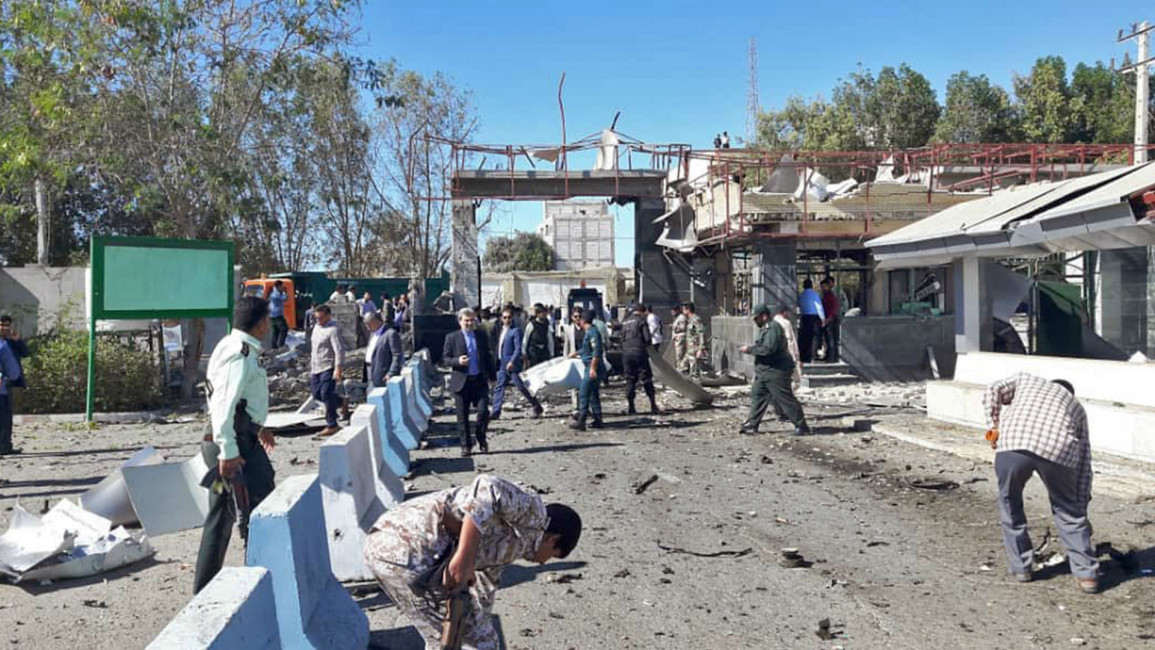Sunni jihadists blamed as suicide bomb targets police station in southeast Iran
A suicide bomber killed at least three people outside a police headquarters in the port city of Chabahar in south-eastern Iran on Thursday, its governor said.
Chabahar governor Rahmdel Bameri said many people were also wounded in the morning car bombing.
"The explosion was very strong and broke the glass of many buildings close by," Bameri told state television.
Many nearby shop owners and civilian passers-by, including women and children, were severely wounded, he added.
Chabahar lies in Sistan-Baluchistan province some 100 kilometres west of the Pakistan border.
The province has a large, mainly Sunni Muslim ethnic Baluchi community which straddles the border and has long been a flashpoint, with Pakistan-based Baluchi separatists and jihadists carrying out cross-border attacks targeting the Shia authorities.
The province's deputy governor in charge of security, Mohammad Hadi Marashi, said multiple assailants took part in Thursday's attack.
Twitter Post
|
"The terrorists tried to enter Chabahar police headquarters but they were prevented by the guards and they detonated the car bomb," he said.
State authorities did not identify who was behind the attack. No militant group immediately said it was behind the bombing.
However, the semi-official Tasnim news agency, believed to be close to Iran’s paramilitary Revolutionary Guard, blamed the attack on Ansar al-Furqan, a Sunni jihadi group.
Chabahar has a deep-water port on the Gulf of Oman and with Indian assistance Iran has been developing it as a major energy and freight hub between Central Asia and India, bypassing Pakistan.
While rare, Iran has been targeted in recent years by militant attacks.
In September, gunmen disguised as soldiers opened fire on a military parade in Ahvaz, killing at least 24 people and wounding over 60. Arab separatists and the Islamic State group both claimed the assault.
Iran's supreme leader, Ayatollah Ali Khamenei, blamed Saudi Arabia and the United Arab Emirates for the attack, allegations denied by both countries.
A coordinated June 2017 Islamic State group assault on parliament and the shrine of Ayatollah Ruhollah Khomeini, the leader of Iran’s 1979 Islamic Revolution, killed at least 18 people and wounded more than 50.


![Widespread famine is imminent in Gaza [Getty Images]](/sites/default/files/styles/image_330x185/public/2024-03/GettyImages-2015647000.jpg?h=199d8c1f&itok=mJWWP_Td)
![Around 700 Muslims visited the US Capitol this week to advocate for civil and human rights domestically and abroad. [Photo courtesy of CAIR]](/sites/default/files/styles/image_330x185/public/2024-05/USCMO%2024_Larg%20image.jpg?h=95efc4ee&itok=89WOr8zy)